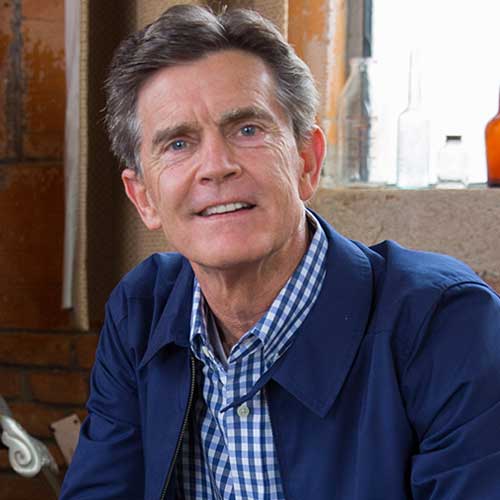We’re living in a day where evil is called good, and where good is called evil. As Christians, many of us are deeply concerned as we see the moral values in the culture and outside Church rapidly changing.
The latest statistics support this. Right now, in the U.S., we have the highest level of people who have no religious affiliation.
Sixty percent of evangelical, Bible-believing believers between the ages of eighteen and thirty are engaging in casual sex or sleeping with their partners.
The rate of divorce is about the same in the Christian community as the non-Christian community.
And 68 percent of Christian youth are abandoning their faith five years after they leave high school.

Current Series
Need a Breakthrough? Find Your Way Forward.
Stop feeling boredom, loneliness, or futility, and take control of what’s holding you back.
Free MP3Listen NowThe public view of Christians has also changed.
Many of us grew up during a time when the culture agreed with what Christians believed. It even supported it. But now, we are living in a world that is more and more anti-Christian.
Fueled much in part by the rampant sexual abuse scandals in the Church, people are now looking at Christianity and saying things like, “We think you Christians are bigoted, prejudiced, irrelevant, intolerant, and we think you’re the problem!”
These are huge issues and are not easily rectified by simply explaining all of the intellectual reasons why God’s Word is true or why we believe Jesus is the Savior of the world. Most people don’t want to hear it.
So, what do we do when we’re asked what we believe and why we believe it? How do we respond in a world that is becoming more and more anti-Christian?
I suggest that we need to rethink our apologetic – the way we defend and explain our faith.
Here’s how and why our approach needs to be different:
Yesterday, apologetics were about what we believe and why. It was aimed at answering the skeptic’s questions.
Today, I believe we need to aim apologetics first and foremost toward believers – especially young people – and answer the questions that will help them keep their faith.
Yesterday, we communicated on a level playing field that presumed truth was objective reality.
Today, we need to be aware we’re communicating on the shifting sands of truth as a subjective reality. This next generation looks at life through different glasses. They are evaluating truth not as an absolute, but something that is relative.
Yesterday, we needed to master facts and data and history to intellectually prove what we believe is true.
Today, we need to model concern and compassion and live a lifestyle that proves what we actually believe is even relevant.
Yesterday, we needed to win the “debate.” I can remember the day when evangelicals and atheists would debate; now, no one even wants to hear a debate.
Today, we need to win an audience.
We do this by living in such a way that people begin asking us, “How do you have a marriage that is so amazing?” and, “How did your kids turn out like that?” and, “How do you handle the adversity coming your way with such an amazing, kind, and loving attitude?”
Our rationale – or defense – of our faith has to start with how we live and how we treat people. We need to actually make an impact and demonstrate that we deeply, deeply care.
It’s not about a competing philosophy anymore. No one wants to hear what we have to say about the Bible, or anything about Jesus for that matter, until they see us living a life that is attractive, loving, and caring.
Do we still hold to the truth? Absolutely. But a radical love is what we should be known for.
For more on how to communicate your faith in an engaging way, see Chip’s series Why I Believe.

Written By
Chip Ingram
Founder & Teaching Pastor, Living on the Edge
Chip Ingram is the CEO and teaching pastor of Living on the Edge, an international teaching and discipleship ministry. A pastor for over thirty years, Chip has a unique ability to communicate truth and challenge people to live out their faith. He is the author of many books, including The Real God, Culture Shock and The Real Heaven. Chip and his wife, Theresa, have four grown children and twelve grandchildren and live in California.
More Articles by Chip
